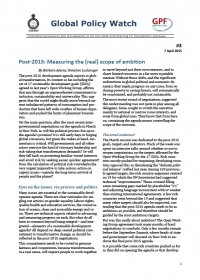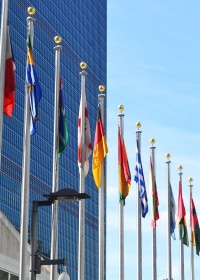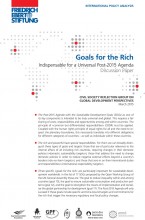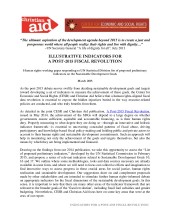
Nachhaltige Entwicklung und Menschenrechte
Global Policy Watch Briefing #3
By Barbara Adams, Gretchen Luchsinger
The post-2015 development agenda aspires to global transformation. Its content so far, including the set of 17 sustainable development goals (SDGs) agreed in last year’s Open Working Group, affirms that aim through an unprecedented commitment to inclusion, sustainability and universality. This suggests that the world might finally move beyond current imbalanced patterns of consumption and production that have left wide swathes of human deprivation and pushed the limits of planetary boundaries.
Yet the main question [...]
An information and strategy session by the Treaty Alliance
Civil society organizations and social movements around the world struggling against corporate abuse achieved a first victory in June last year when the UN Human Rights Council adopted Resolution 26/9, establishing an Intergovernmental Working Group whose the mandate shall be to elaborate an international legally-binding instrument to regulate the activities of business enterprises. However, there remain important challenges to ensure that a robust treaty ensuring genuine corporate accountability and access to justice will be drafted in a participatory and transparent [...]
Indispensible for a Universal Post-2015 Agenda
New Discussion paper for the Civil Society Reflection Group on Global Development Perspectives I March 2015
The Post-2015 Agenda with the Sustainable Development Goals (SDGs) as one of its key components is intended to be truly universal and global. This requires a fair sharing of costs, responsibilities and opportunities among and within countries. The principle of »common but differentiated responsibilities« (CBDR) must be applied. Coupled with the human rights principle of equal rights for all and the need to respect [...]
Inaugural Meeting to drive changes ahead of Post-2015 Ambition
Old Tensions and New Challenges Emerge in Negotiating Session
Seitennummerierung
- Vorherige Seite
- Page 39
- Nächste Seite



